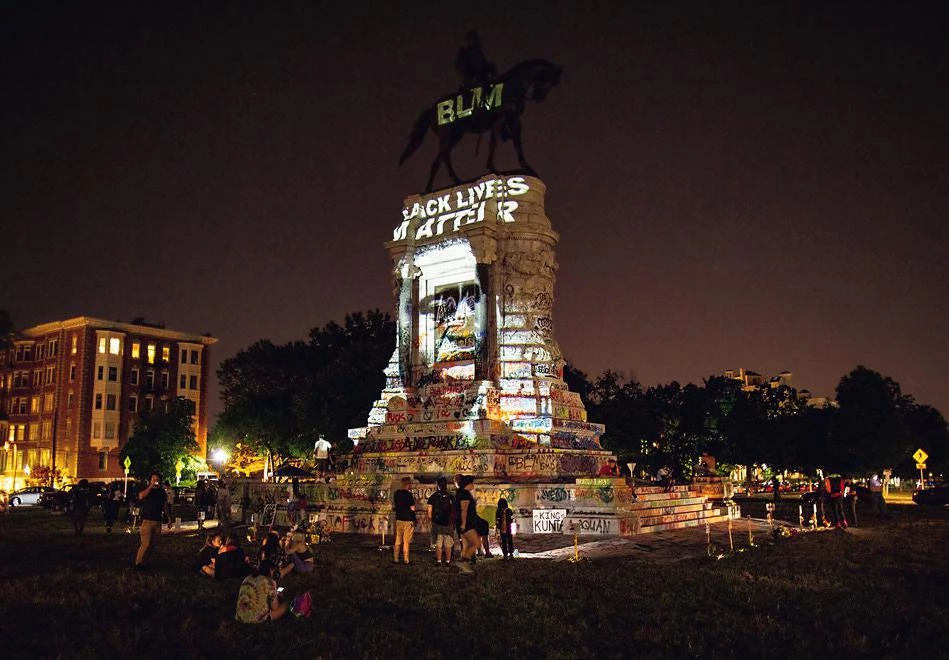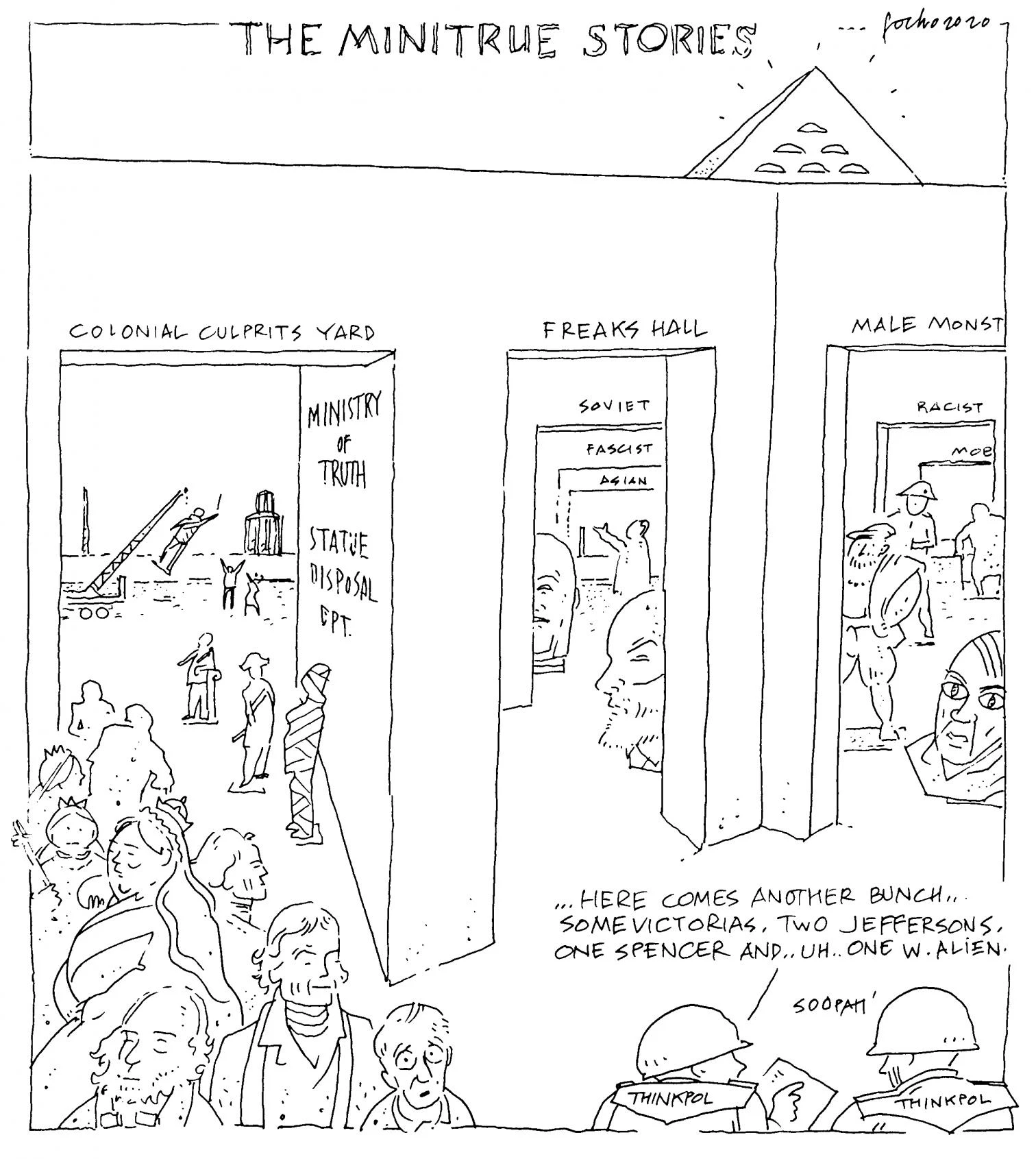
With its allergy to rhetoric, modernity seemed to have achieved the feat of making us indifferent to monuments. Hundred, thousands of statues and busts colonized public space without our really knowing who they were. We didn’t care. We simply thought of them as the decorum or atrezzo needed for cities to be symbolically ‘complete.’
The pandemic has affected society at all levels, but among the consequences that could not have been as easily predicted is that monuments, more or less deactivated by the passage of time and reduced to mere civic paraphernalia, have regained their significance. A significance which, brought back to life by the very anachronism of these memorials (heroes of the past need not be heroes today), has ended up sparking hatred and rejection. Indeed, there is no word but hate – retroactive and useless hate – for the manner in which, reacting to the murder of George Floyd, multitudes have deemed it fit to bring down statues of figures who in some way represent colonialism and the traditional hierarchies of power: slave traders turned into eminences of the 18th century, racist generals of the 19th, but also heretofore untouchable notables like Columbus or Churchill.
Surely these protesters have their reasons, but this iconoclasm has gone too far, and 150 intellectuals who can hardly be tagged as conservatives signed a letter in Harper’s magazine condemning the ‘cancel culture.’






